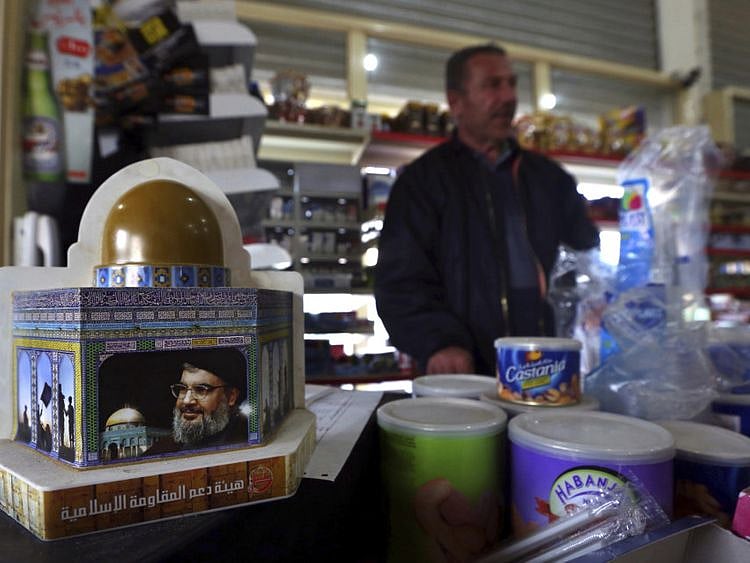Tehran: A year after the US withdrew from a landmark nuclear accord, Iran’s economy is suffering under renewed sanctions.
The Islamic republic’s economy is expected to shrink by a whopping six per cent this year, on top of a near four per cent contraction last year, according to the International Monetary Fund.
But the downturn may yet be even more brutal, because the IMF’s prediction came before the US sank a vital trade lifeline a few days ago.
sanction waivers
On April 22 the United States announced it was terminating a sanctions waiver that had allowed eight countries to continue buying Iranian oil.
“The economic situation in Iran is bad - and is getting worse,” warned Henry Rose, an analyst for Eurasia Group, an American consultancy.
The current crisis appears in some ways worse than a 2012-13 recession, when pre-deal multilateral sanctions against Tehran’s nuclear programme and its ballistic missile projects were biting hardest.
The July 2015 nuclear agreement reached in Vienna between Iran and the so-called P5+1 — the five permanent UN Security Council members and Germany — had seen Iran emerge from the cold to tentatively rejoin the community of nations.
The accord partially lifted international sanctions on Tehran, bringing the prospect of an economic recovery.
In exchange, the Islamic republic agreed to drastic curbs on its nuclear programme and pledged never to develop an atomic weapon.
Rampant inflation
But decreeing that the pact failed to sufficiently temper Iran’s nuclear ambitions, US President Donald Trump on May 8, 2018, unilaterally withdrew from the deal and promised to re-impose sanctions.
Those sanctions began to kick in from August 2018.
The US says it is leading a campaign of “maximum pressure” against Tehran in order to negotiate a better deal.
It appeared to up the ante on Sunday, saying it would send an aircraft carrier strike group and bomber task force to the Middle East in a “clear and unmistakable” message to Iran.
Since Trump pulled out of the nuclear accord, Iran’s rial has lost more than 57 per cent of its value against the dollar on the black market.
That has helped spur inflation to 51 per cent year-on-year — up from a manageable eight per cent a year ago.
Wages have failed to keep pace with rising prices, hitting workers in the pocket.
Food prices skyrocket
There has been a particularly severe impact on the affordability of food.
“We have raised our prices by 70 per cent” since the start of the last Iranian year (March 21, 2018), said a food industry source.
“And we will probably have to increase by a further 20 per cent by July,” he added.
It has become difficult to find red meat in some of the capital’s shops.
For many, pistachio nuts — previously a permanent fixture on tables — have become an unaffordable luxury.
Washington’s end to the oil waivers has been received with something of a fatalistic attitude in Tehran.
“What will become of the country if it can no longer sell any oil?” mused a resident.
In the face of the US withdrawal, Iran has so far chosen to stick to the nuclear accord and continue to respect the commitments it made in Vienna.
But Iran is irritated by what it sees as the inability of Europe to stand up to the US and save the nuclear deal and its associated economic benefits.
Iran’s deputy foreign minister Abbas Araghchi has repeatedly warned that his country’s patience “has limits”.
The European signatories to the nuclear accord in late January established an exchange mechanism allowing Iran to continue trading with Europe.
But it has not so far been blessed by a single transaction.
proxies feel the pinch
Reports have surfaced recently of Iran-sponsored Hezbollah asking its supporters to step up donations. Its donation boxes are not new, but they have popped up in far greater numbers all over Lebanon. The militant group has reduced social welfare payments.
In Syria, people are feeling the effects of economic sanctions imposed on its ally Iran. There have been widespread fuel shortages in Damascus and other government-controlled areas, forcing people to wait for hours in lines stretching several kilometres to get a few litres of petrol.
The sanctions also mean that Tehran’s ability to fund the reconstruction effort in Syria will be severely curtailed.
Sign up for the Daily Briefing
Get the latest news and updates straight to your inbox
Network Links
GN StoreDownload our app
© Al Nisr Publishing LLC 2026. All rights reserved.
